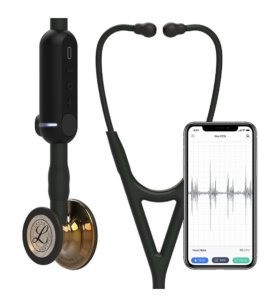All About Urinary Incontinence

Types of urinary incontinence
There are several types of urinary incontinence.
Stress incontinence
When pee leaks out at times when physical pressure is placed on the bladder. For example, when you cough or laugh.
Urge incontinence
When urine leaks as you feel a sudden, intense urge or pressure to pee, or soon afterwards.
Overflow incontinence
When you’re unable to fully empty your bladder, causing urine to spill out.
Continuous incontinence
When your bladder cannot store any urine at all. This causes you to leak urine all the time.
It’s possible to have a mixture of both stress and urge urinary incontinence.
When to seek medical advice
Talk to your GP if you have any type of urinary incontinence. Urinary incontinence is a common problem. You shouldn’t feel embarrassed talking to them about your symptoms. This can also be the first step towards finding a way to effectively manage the problem.
Urinary incontinence can usually be diagnosed after a consultation with your GP. They will ask about your symptoms. They may carry out a pelvic examination (in women) or rectal examination (in men).
Your GP may also suggest you keep a diary to write down how much fluid you drink and how often you have to pee.
Causes of urinary incontinence
Stress incontinence
This is usually the result of the weakening of or damage to the muscles used to prevent peeing. These are the pelvic floor muscles and the urethral sphincter.
Urge incontinence
This is usually caused by over activity of the native detrusor muscles of the bladder. These normally control the storage and discharge of urine from the bladder.
Overflow incontinence
This is often caused by an obstruction or blockage to your bladder. This blockage prevents it emptying fully, causing urine to overflow from the full bladder.
Continuous incontinence
This may be caused by a problem with the bladder from birth, a spinal injury, or a bladder fistula.
Certain things can increase the chances of urinary incontinence developing, including:
- pregnancy and vaginal birth
- obesity
- a family history of incontinence
- increasing age, but incontinence is not always part of ageing
- brain and spinal cord disease
Treating urinary incontinence
Your GP may suggest some simple measures to see if they help improve your symptoms. They may also refer you to an advisor on urine incontinence or a hospital specialist.
These may include:
- lifestyle changes like losing weight or cutting down on caffeine and alcohol
- pelvic floor exercises– taught by a specialist, this involves squeezing your pelvic floor muscles to exercise them
- bladder training – where you learn ways to wait longer between needing to pee and peeing
You can also use incontinence products, such as absorbent pads and handheld urinals.
Medication may also be recommended if you’re still unable to manage your symptoms.
Surgery for non-urinary incontinence
Surgery may also be considered. The specific procedures suitable will depend on the type of incontinence you have.
Stress incontinence
Surgery such as sling procedures, are used to reduce pressure on the bladder. They may also be used to strengthen the sphincter muscles that control peeing.
Urge incontinence
You can have surgery to enlarge your bladder or to implant a device. The device stimulates the nerve that controls the detrusor muscles. Muscle relaxants may also be injected directly into the bladder muscle.
Preventing urinary incontinence
It’s not always possible to prevent urinary incontinence. But there are some steps you can take that may help reduce the chance of it developing.
These include:
controlling your weight
avoiding or cutting down on alcohol
keeping fit – in particular, ensuring that your pelvic floor muscles are strong
Healthy weight
Being obese can increase your risk of developing urinary incontinence. To lower your risk, keep a healthy weight through regular exercise and healthy eating.
Use the Safe Food Ireland BMI calculator to see if you are a healthy weight for your height.
Drinking habits
Depending on your bladder problem, your GP can advise you about the amount of fluids you should drink.
Reduce your intake of alcohol and caffeine-containing beverages if you suffer from urine incontinence. These can irritate your bladder and cause your kidneys to generate extra pee.
If you suffer frequent nighttime urination (nocturia), try drinking less in the hours leading up to bedtime. However, make sure you drink enough water throughout the day.
Pelvic floor exercises
Being pregnant and giving birth can weaken the bladder muscles. If you’re pregnant, strengthening your pelvic muscles may help prevent urinary incontinence.
Men may also benefit from strengthening their pelvic floor muscles.
Article by: HSE
Browse all our incontinence products here.
https://www.hiberniamedical.ie/shop/nursing-home-special-offers/incontinence-nursing-home-special-offers/continence-pads/tena-pants-plus-incontinence-pants/





